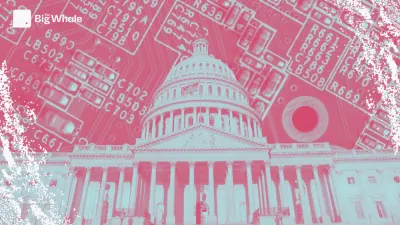Influenceurs cryptos : ce que le vote au Sénat change pour eux

Les sénateurs 🇫🇷 ont voté hier soir une nouvelle version de la loi influenceurs avec un assouplissement important sur les cryptos. The Big Whale fait le point sur un texte qui doit encore être validé en commission mixte paritaire, réunissant députés et sénateurs, pour être définitivement adopté.
De quel texte parle-t-on ?
Après une série de scandales, les députés Arthur Delaporte (Parti socialiste) et Stéphane Vojetta (apparenté Renaissance) ont déposé le 31 janvier une proposition de loi visant à lutter contre “les dérives des influenceurs sur les réseaux sociaux”.
Cette proposition de loi, soutenue par la plupart des députés, concerne tous les secteurs, et notamment celui de la crypto 👀.
Que prévoit le texte d’abord adopté par les députés ?
Le 30 mars, les députés ont adopté la loi en première lecture. Cette première version, très critiquée par le secteur crypto, est effectivement stricte : contrairement à ce qui avait été proposé par certains élus comme Éric Bothorel (Renaissance), les influenceurs ne peuvent travailler qu’avec des entreprises qui ont l’agrément de prestataires de services sur actifs numériques (PSAN) délivré par l’Autorité des marchés financiers (AMF).
👉 Actuellement, aucune entreprise crypto n’est agréée.
Toutes celles qui sont légalement autorisées en France n’ont qu’un enregistrement PSAN (il y en a une soixantaine), ce qui signifie, qu’à date, aucune entreprise n’est autorisée à travailler avec des influenceurs.
“Il y a des pratiques qui s'apparentent en tous points à des arnaques et elles doivent clairement cesser, mais le texte adopté par les députés aurait pu pénaliser tout le monde, y compris les opérateurs les plus sérieux”, explique Mélodie Ambroise, directrice de la stratégie et des relations institutionnelles de l’Adan (Association pour le développement des actifs numériques).
Cette approche “stricte”, défendue par la majorité des élus, a été adoptée pour aligner l’univers des cryptos sur celui de la finance traditionnelle. Pour les actions ou les produits d’investissement plus classiques, les influenceurs ne peuvent travailler qu’avec des sociétés financières agréées auprès de l’AMF.
“Le but est que les cryptos aient le même régime que les autres actifs financiers. Cela paraît assez évident”, explique Stéphane Vojetta, député apparenté Renaissance et rapporteur de la proposition de loi à l’Assemblée nationale.
Qu’est-ce que les sénateurs ont voté ?
La version que les sénateurs ont adopté hier est, elle, bien plus souple. Les influenceurs cryptos n’ont plus l’obligation de travailler avec des entreprises agréées comme PSAN. Ils peuvent être rémunérés par des entreprises enregistrées PSAN comme Coinhouse, des émetteurs d’ICO labellisés auprès de l’AMF, des projets NFTs ainsi que des acteurs de la finance décentralisée (DeFi).
“Cette approche correspond beaucoup plus aux besoins du secteur. L’industrie crypto est encore jeune, donc il faut créer des règles sans ralentir son développement”, se félicite Mélodie Ambroise. “Le texte adopté par les sénateurs est moins exigeant, mais il fixe un cadre”, explique de son côté Stéphane Vojetta.
Quelle est la prochaine étape ?
Les versions de l’Assemblée et du Sénat n’étant pas les mêmes, il va désormais y avoir une commission mixte paritaire (CMP), composée de 7 députés et de 7 sénateurs, pour trouver un consensus entre les deux versions.
Si les 14 élus se mettent d’accord, alors le texte sera représenté à l'Assemblée nationale et au Sénat dans la même version pour son adoption définitive ; en cas d'accord, le texte est très généralement adopté par les deux chambres.
S'il n'y a pas d'accord en CMP, le texte repartira à l’Assemblée nationale avec de nouveaux travaux pour une deuxième lecture. Mais il semble assez probable que les députés et les sénateurs se mettent d’accord. “Nous allons regarder le texte dans le détail, mais en l'état, il me paraît être une bonne solution”, explique Stéphane Vojetta.
Le texte pourrait être alors adopté courant juin.
Avant d’investir dans un produit, l’investisseur doit comprendre entièrement les risques et consulter ses propres conseillers juridiques, fiscaux, financiers et comptables.




